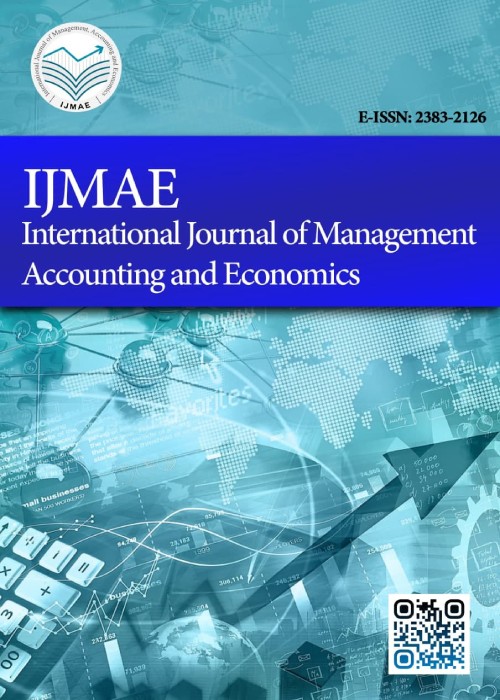فهرست مطالب
International Journal of Management, Accounting and Economics
Volume:6 Issue: 10, Oct 2019
- تاریخ انتشار: 1398/08/14
- تعداد عناوین: 4
-
Pages 709-730
Banking, a demand-driven industry is vastly growing to date by consistently expanding its client network via internet banking. The rendered service quality by banks has nevertheless been the essential tool for attracting prospective customers. Although, impact of service quality on satisfaction and patronage is well researched, investigating the same for internet banking and in Malaysian context is a definite research gap. This study is conducted to see the impact of service quality on the adoption of internet banking and then to identify if the service quality dimensions of reliability, responsiveness, communication, access and security leads to customer satisfaction and subsequently leads to patronage in Malaysia. The data is gathered from 202 bank customers using judgmental sampling through two sets of questionnaires viz. User of Internet Banking and Non-User of Internet Banking. Based on the determined results produced using SPSS 20 indications were obtained that the customers place great emphasis towards the service quality dimension of security and accessibility of internet banking respectively. The service quality has been found to significantly influence the adoption of internet banking in Malaysia. Service quality aspects, specially access and security, impact satisfaction and satisfaction impacts patronage, therefore, in accelerating the adoption rate, the banks should further enhance their offering in internet banking and concurrently provide a more efficient and easy to user interface.
Keywords: Adoption, Internet Banking, Loyalty, Satisfaction, Service Quality -
Pages 731-751
This study examined the impact of financial development, tourism, population density and political stability on environmental degradation in Pakistan over the time 1986-2017. Data of these variables is taken from World Development Indicator (WDI), World Tourism Organization (WTO), International country risk guide (ICRG) database and federal bureau of Statistics of Pakistan. To investigate the findings, three separate models are constructed by using three different indicators of financial development. Firstly, CoIntegration among variables is confirmed through Bound test of Co-Integration. The result of this test reveals that co-integration among all the variables exists in the long run. Auto Regressive Distributed Lag (ARDL) technique is used to examine short run and long run estimates. Findings of the study concluded that in all the models financial development has considerable positive relationship with CO2 related pollution in the long run while in the short run results depend on which dimension of financial development is used. As, M2 has significantly negative impact on environmental degradation whereas, Population density has negatively significant role in explaining carbon dioxide emissions in the long run but it is positive and inconsequential in the short run. Tourism has negative and significant effect on environmental deterioration in case of Political stability has statistically significant and inverse relationship with CO2 emissions both in short and long run. These outcomes may also become fruitful for Government
regarding decision making. The result recommends that Government should try to focus on financial development, tourism sector and political stability more keenly. Government should impose some restrictions on financial sector as, loans and finance should only be given for productive and environment friendly projects. Taxes should be imposed on most visited tourist’ places. Awareness among people regarding depreciation of environment should be promoted by different activities or programs conducted by Government.Keywords: Environmental Degradation, Money Order, tourism, population density, political stability -
Pages 752-760
Services trade has gained significance in the globalized world as the volume and its impacts on growth have increased. South Asian countries are also engaging in exports of services which are vital for their respective economies. However, the regional integration is yet to be promoted as hurdles including high transportation costs, lack of cross border infrastructure and lack of regional transit existed. For services trade integration, effective utilization of regional platform, easing in movement of professionals and minimizing the investment barriers can be useful measures. South Asian economies have prospects of integration in specific sectors such as tourism and Information and Communication Technology (ICT) which can be used to enhance regional services trade ties.
Keywords: Services trade, ICT, Tourism, Regional integration, SAARC -
Pages 761-769
This study aims to analyze the influence of Human Resources, Internal Control on the quality of financial statement that are moderate by Accounting Information System (In Financial Bureau and equipment of the Secretariat general). This research uses primary data in distributing questionnaires to the financial who works in financial bureau and equipment of the secretariat general located in Jakarta, Indonesia. This study uses a purposive sampling method in data collection. Data obtained by collecting 120 questionnaires. 120 questionnaires or ninety four point five percent of the total distribution of questionnaires can be processed. Data were analyzed by multiple regression using SPSS. The results of the 120 respondents who answered the questionnaire showed that human resources, internal control, accounting information systems have a significant effect on the quality of financial statements either partially or simultaneously.
Keywords: Human Resource, Internal Control, Accounting, Information System, Quality of Financial Statement


